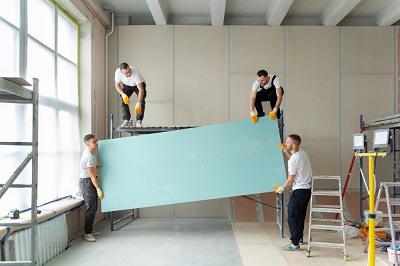Home repair and renovation projects can dramatically enhance the functionality, aesthetics, and value of your home. However, tackling these projects can also come with challenges that, if not handled correctly, can result in costly mistakes. Whether you’re a first-time homeowner or a seasoned renovator, understanding the key do’s and don’ts of home repair and renovation is essential. In this comprehensive guide, we’ll explore how to approach home projects effectively, avoid common pitfalls, and ensure the successful completion of your tasks.
DO: Plan and Budget Thoroughly
One of the most crucial aspects of a successful renovation project is proper planning. Before diving into any repairs or renovations, it’s essential to map out every detail, from the design and materials to the timeline and costs.
- Set Clear Goals: Before beginning any project, know exactly what you want to achieve. Whether it’s fixing structural issues, modernizing a room, or increasing your home’s energy efficiency, setting defined goals ensures that the project stays on track.
- Create a Realistic Budget: Establish a detailed budget that covers all expenses, including materials, labor, permits, and any potential unexpected costs. Always allocate 10-20% extra for unforeseen expenses.
- Do Your Research: Explore different design ideas, gather quotes from contractors, and investigate the materials you’ll need. Being informed helps avoid unnecessary expenses and ensures the final result meets your expectations.
DON’T: Overestimate Your DIY Skills
While tackling DIY projects can save money and provide personal satisfaction, there are certain home repair tasks that should be left to the professionals.
- Understand Your Limits: Tasks like plumbing, electrical work, or large-scale structural changes require specialized knowledge and experience. Attempting these on your own without the proper skills can lead to accidents, property damage, and may even void your home insurance policy.
- Prioritize Safety: Always assess whether a task is safe for you to handle alone. If a project seems too complex or risky, hire a professional to ensure the job is done correctly and safely.
- Recognize the Importance of Expertise: Professionals not only bring skills but also efficiency. Trying to tackle every project yourself can lead to delays and subpar results.
DO: Get the Necessary Permits
Permits are required for many types of home renovations, especially those that involve structural changes, plumbing, or electrical systems. Failing to obtain the proper permits can lead to legal issues and fines down the line.
- Research Local Regulations: Permit requirements vary depending on the type of renovation and your location. Before starting, check with your local building authority to determine what permits are needed.
- Follow Building Codes: Adhering to local building codes ensures that your renovation is up to safety standards and that your home remains legally compliant.
DON’T: Skimp on Quality Materials
Using cheap or low-quality materials might save you money upfront, but they can lead to problems and higher costs in the long run.
- Invest in Quality: Durable, high-quality materials often cost more initially but can extend the lifespan of your renovation, reduce the need for repairs, and enhance the overall look and feel of your home.
- Think Long Term: Choose materials that will stand the test of time, rather than those that may need frequent replacement or repairs. For example, hardwood floors, high-grade insulation, and solid countertops tend to offer more value in the long run than their cheaper alternatives.
DO: Hire Licensed and Insured Contractors
When bringing in professionals for your home renovation, it’s vital to ensure they are both licensed and insured. This helps protect you from liabilities and ensures that the contractor is qualified for the job.
- Check Credentials: Always verify that the contractor holds the appropriate licenses for the work they will be performing. Confirming this can help avoid legal issues and ensure the work meets industry standards.
- Request Proof of Insurance: Contractor insurance protects both parties in the event of an accident or damage to the property during the renovation. Make sure the contractor has liability insurance and workers’ compensation coverage.
DON’T: Ignore Energy Efficiency
Energy efficiency is often overlooked during home repairs and renovations, but it can have a major impact on your home’s long-term value and cost-effectiveness.
- Consider Energy-Efficient Upgrades: Install energy-efficient windows, LED lighting, and appliances. Not only will this reduce your energy bills, but it will also increase your home’s resale value.
- Insulate Properly: Proper insulation in walls, attics, and floors can prevent heat loss in winter and keep your home cooler in summer, further reducing your energy costs.
- Use Sustainable Materials: Whenever possible, opt for eco-friendly materials such as recycled or sustainably sourced wood, bamboo, or energy-efficient concrete.
DO: Focus on Functionality and Design
Home renovations are a balancing act between aesthetics and functionality. When planning your project, it’s important to ensure that the space will be both beautiful and practical.
- Prioritize Functionality: A space should serve its intended purpose without compromising on convenience or usability. For example, if you’re renovating a kitchen, ensure that the layout is practical for cooking and meal prep, with ample storage and counter space.
- Choose Timeless Designs: While it’s tempting to follow the latest design trends, timeless and classic styles tend to have more longevity. Opt for neutral colors, high-quality fixtures, and versatile designs that will remain appealing for years to come.
- Ensure Cohesion: If you’re renovating just one room, make sure it complements the rest of the house. Consistency in design throughout your home creates a harmonious and aesthetically pleasing atmosphere.
DON’T: Rush the Process
Home repairs and renovations require patience. Rushing the process can lead to mistakes, poor craftsmanship, and a final result that fails to meet your expectations.
- Stick to the Timeline: While it’s natural to want the project completed as quickly as possible, ensure that the timeline allows for proper completion of each step. Skipping or rushing phases, such as drying times for paint or waiting for permits, can lead to issues later on.
- Avoid Impulse Decisions: Stay true to your plan and budget. Impulse buys or last-minute changes can lead to increased costs and delays.
- Take Time for Inspections: After each major phase, take the time to inspect the work carefully. Make sure everything meets your standards and that no corners have been cut.
DO: Maintain Open Communication with Contractors
Clear and open communication with your contractors is essential for ensuring that the project goes smoothly.
- Set Expectations Early: From the beginning, establish a clear line of communication with your contractor. Discuss timelines, budgets, and any specific details to avoid misunderstandings down the road.
- Ask Questions: Don’t hesitate to ask questions if you’re unsure about any aspect of the renovation. It’s better to clarify upfront than to deal with mistakes later on.
- Stay Involved: Regularly check in with your contractors to ensure the project is progressing as expected. Being involved helps ensure the final result aligns with your vision.
Conclusion
Undertaking home repair and renovation projects requires careful planning, patience, and informed decision-making. By adhering to these do’s and don’ts, you can avoid costly mistakes, ensure high-quality results, and ultimately enhance the value and comfort of your home.




